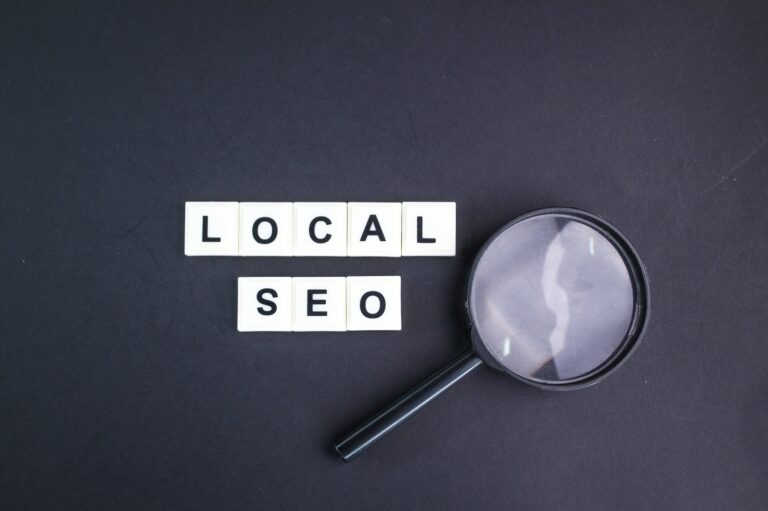Optimizing for local search is an essential aspect of modern SEO that helps businesses reach their local audiences. By enhancing your online presence in local search results, you can drive more traffic to your website, increase visibility, and attract more customers in your area. Local SEO (Search Engine Optimization) is crucial for businesses aiming to dominate local search results and improve their local ranking in search engines like Google.
In this post, we’ll explore effective strategies for optimizing your website for local search, improving local SEO, and ensuring your business ranks higher in local search engine results pages (SERPs).
Understanding Local SEO and Its Importance
Local SEO focuses on optimizing your website and online presence to appear in relevant local search results. With the rise of mobile and voice searches, local search optimization has become increasingly important for small businesses looking to attract nearby customers.
Here’s why local SEO is crucial:
- Increased visibility: Optimizing for local search boosts your visibility in local search results, which makes it easier for potential customers to find your business online.
- More relevant traffic: Local search helps you attract visitors who are actively searching for products and services in your area.
- Higher conversion rates: Users searching locally are often ready to make a purchase, visit, or contact a business. Local SEO helps convert searchers into customers.
- Better competition: A well-executed local SEO strategy enables your business to stand out in a crowded market and rank higher than competitors.
Key Local SEO Ranking Factors
To improve your local ranking, it’s essential to understand the key ranking factors that influence local search results. Here are some of the most critical factors that determine where your business appears on search engine results pages (SERPs):
1. Google My Business (GMB) Optimization
One of the most effective ways to improve your local visibility is by optimizing your Google My Business (GMB) profile. A complete and accurate GMB listing can significantly boost your business in local search results.
- Claim and verify your business: Ensure your business is listed and verified on Google.
- Update business details: Include your address, phone number, hours of operation, and website URL.
- Add relevant images: Upload high-quality images that showcase your products, services, and location.
- Collect reviews: Encourage happy customers to leave reviews, as positive feedback can improve your local ranking.
2. Local Keywords
Using the right local keywords is essential for ranking well in local search results. These keywords include your location-based search terms, such as city names or neighborhoods, combined with the products and services you offer.
- Research local search terms people are using to find businesses like yours.
- Incorporate these keywords into your website’s content, title tags, meta descriptions, and headings.
3. On-Page SEO Optimization
For effective local SEO, your website’s on-page SEO plays a crucial role. Here are some optimization tips to help your site rank higher in local search:
- Local content: Write content that’s relevant to your local area and local prospects.
- Local business schema: Use local business schema markup to help search engines understand your business type, services, and location.
- Optimize title tags and meta descriptions: Include location-specific keywords to improve search rankings.
4. Local Backlinks
Earning local backlinks from relevant local sites can help boost your authority and improve your local search ranking. When search engines see that your site is linked to by reputable local businesses or influencers, it signals trust and relevance to the search algorithm.
- Get listed in local directories or relevant local business listings.
- Partner with local influencers to promote your products or services.
Steps to Optimize Your Website for Local Search
Optimizing your website for local search involves several crucial steps. Here’s a checklist to ensure your website is ready to perform well in local SEO:
1. Optimize for Google Business Profile
- Claim your Google Business Profile and ensure it is fully optimized.
- Include your business phone number, address, and website URL.
- Add images, business hours, and relevant information about your products and services.
- Respond to customer reviews and maintain active engagement on your profile.
2. Use Local Keywords
- Research local keywords that potential customers are likely to search for.
- Incorporate these keywords into your website’s content, titles, headings, and meta tags.
- Consider long-tail keywords that include your city or neighborhood to target hyper-local search terms.
3. Optimize Your Website’s On-Page SEO
- Write content that addresses the needs of local prospects and reflects your business’s relevance to the area.
- Implement local business schema markup to help search engines understand your business better.
- Optimize images with descriptive alt text that includes your local keyword.
4. Create Local Content
- Write blog posts and articles about topics relevant to your local area or local service providers.
- Use local events, news, or community activities as content opportunities.
- Highlight customer testimonials or case studies from local customers.
5. Earn Local Backlinks
- Get involved in local partnerships to earn backlinks from trusted local sites.
- Sponsor local events or charities to build relationships and earn local backlinks.
- List your business in local directories or participate in local business forums.
6. Ensure Mobile Optimization
- Make sure your website is fully optimized for mobile users, as many local searches are done on mobile devices.
- Optimize load speed, user experience, and mobile navigation to keep customers engaged.
SEO Tips for Improving Your Local Ranking
To boost your local SEO efforts, implement the following SEO tips:
- Use location-specific meta tags: Ensure that your title tags and meta descriptions contain your location to attract the right audience.
- Optimize for voice search: Many local search queries are voice-based. Optimize your website to answer common questions related to your products or services.
- Help search engines understand your content: Use clear and structured content that makes it easy for search engines to index your site and serve it to users.
- Focus on high-quality, relevant content: Consistently update your website with content relevant to local searches. This will help improve your local search ranking over time.
Boost Your Local SEO: Actionable Strategies
Here are some strategies to boost your local SEO and improve your local search visibility:
- Optimize for Google My Business: Claim and optimize your GMB listing, add relevant business details, and encourage customer reviews.
- **Focus on local search results: Use local search terms in your website content and metadata to help search engines find your business.
- Earn local backlinks: Build partnerships with other local businesses and organizations to increase your site’s authority.
- Leverage local influencers: Engage with local influencers to promote your business and gain credibility in the community.
Conclusion
Optimizing for local search is an essential part of any SEO strategy for businesses that want to attract nearby customers. By implementing effective local SEO strategies, focusing on Google My Business, using the right local keywords, and earning local backlinks, you can significantly improve your local search ranking and drive more targeted traffic to your website.
By following these steps and SEO tips, your business can stand out in local search results and increase visibility to the right audience. Start optimizing your website today, and watch your local SEO efforts lead to higher rankings, more traffic, and increased sales.











